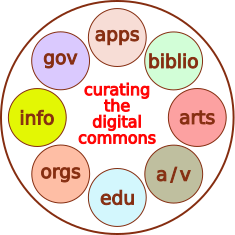An invitation . . .
My canon, explorations
An Invitation. . . .
In September 1961, I waited outside Professor Lawrence Cremin's office, wanting permission to join his colloquium on the history of American educational thought. After a brief eternity, Mrs. Zolot, the secretary for Philosophy and the Social Sciences, a woman at once kindly and curt, instructed me to go speak to the Professor.
Cremin, an attentive, gracious man of 35 or so, listened to me explain,
- I was starting to work on a Ph.D. in Columbia's history department, having graduated from Princeton the previous June,
- Could I participate in his colloquium, which was key to my interest in the history of educational thought?
He welcomed me in the colloquium, suggesting that I sit in as well on his lecture course, a prerequisite. That was my start here, and I have been here ever since, as a student, and from fall 1967, as a member of the faculty. Now, after this semester, I am retiring from the faculty, which naturally has me thinking back a bit, asking questions—
- What have I learned?
- Why did I try to do what I tried to do?
- What continuities and changes of note have I witnessed?
- Whither goes the future, here and in the world at large?
This course, My Canon, is an opportunity to answer, as best I can. Anyone who wants to join in is welcome.
In My Canon, I will reflect on the history of educational thought. I will also examine my personal engagement with that history. And I will further consider the historical context—in education, in academe, and in the world at large—within which my engagement with the history of educational thought took place.
I suspect that the last of these, the historical context, may be the most valuable of the matters at issue. To refresh my memories, I have been reading some large, comprehensive histories—Postwar by Tony Judt for Europe, and Grand Expectations and Restless Giant by James T. Patterson for the United States. These accentuate the succession of events—history as one thing after another—whereas what stands out for me is the subjective interrelation of historical situations and developments, the way my peculiar experience of one thing colors my experience of another. My Canon will recount how my engagement with important works of educational theory interacted with my experience of a lived historical context over a 50-year period. I hope others may find it informative.
What will come of it, I am not sure. I have offered neither this course before, nor one like it, and I've never taken one like it, either. So I don't know exactly what will happen. Preparing it has taken the better part of a lifetime, and my plan of reflection has an agenda, the skeleton of which is at the right on your screen, with links to Wiki pages and from those to other materials, all of which are extensible by each of us participating in the inquiry. I expect to start our meetings with something of a monologue, which should turn interactive as it proceeds. There will be pointers on a growing number of pages linking to stuff to read, to listen to, and to watch, which each can engage and add to as interests move and as constraints allow.
Students registered for academic credit should study a work of substance to add to Your Canon and post your reflections to the course website about why, in your cultural, historical, and professional context, you include it in Your Canon and how it helps you form your sense of self and your circumstances. And of course, auditors may do so as well.
What's Next?
Contentions about The Canon do not interest me. Each person, I believe, has a life-long engagement with an emerging canon, uniquely his own – other persons, cultural works, places and institutions, challenging problems – matters that appear imbued with a charismatic, compelling authority towards which a person reaches out with aspiration and hope. And for me as an academic, my canon has consisted largely of major texts, which over the years I have felt I must engage, struggle with, and try to appropriate into my understanding of my work and of the circumstances impinging upon its pursuit.
- My canon is not a reading list; it indicates cumulative concerns over a prolonged career, which began forming in the late 1950s and will continue beyond this day.
- My canon does not list, as a résumé might, the topics of my expertise. Formative influence arises as we strive towards something, often ill-defined and incompletely mastered, not as we become specialists in it, versed in its every niche and nuance.
- My canon is not only the texts comprising it, but more, the context surrounding engagement with them. Reflection and formative influence occurs through persons immersed in complex circumstances – the cultural, political, professional situations of a specific time and place. Hence,
- My canon is one window, out of innumerable possibilities, for viewing historical experience over the past half century, both within the house of intellect and from it out onto the world at large.
In addition to weekly meetings, My canon will have a website which will provide background resources for classes, a discussion board, and diverse contextual materials.




